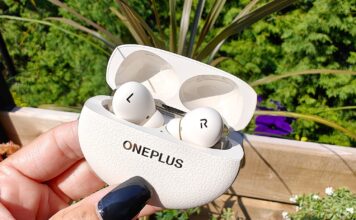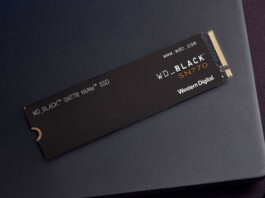
I’ve been using rechargeable batteries exclusively for the past few years, and it wasn’t until I only used them that I realized how much unnecessary waste I was producing. So many devices we use daily take batteries, and I was swapping out AA and AAA batteries on some devices almost every week. Once I picked up rechargeable batteries and a battery charger, I realized that they are just as easy to use and can be more environmentally friendly in the long run. Here are a few reasons why you may want to switch to rechargeable too.
Disposable batteries vs. rechargeable batteries
Disposable batteries, also known as single-use batteries, are made from materials including alkaline, zinc-carbon, manganese, and steel. Some may also contain toxic substances like lead and mercury. The distinguishing feature here is that disposable batteries are designed to last for a single lifespan—when these batteries run out of power, you need to dispose of them.
Rechargeable batteries are made from similar materials, but instead of having a single lifespan, you can recharge them with a battery charger and restore them to a full charge. There are different types of rechargeable batteries including lithium-ion, nickel-cadmium (NiCd), and nickel-metal hydride (NiMH), available in standard sizes like AA, AAA, C, D, and 9-Volt.
While they cost a bit more initially because you’ll need to invest in a charger and a few sets of batteries, they can offer long-term savings and convenience. You can find battery chargers that work with either a single size of battery or multiple sizes. In terms of ease of use, they function in the same way as disposable batteries. The main benefit of using rechargeable batteries is that they can be more sustainable.
Rechargeable batteries can be used hundreds of times
Both disposable and rechargeable batteries generate environmental waste, but rechargeable batteries can be more sustainable because they can be used multiple times. According to GreenMatch, the average lifespan of a rechargeable battery is between 3 to 5 years, and they can be recharged 500 to 1000 times. This means you’ll have to buy fewer batteries over time compared to disposable ones. A study from 2016 highlighted by Consumer Reports found that rechargeable batteries become more eco-friendly than disposable batteries after 50 charges. Additionally, GreenMatch notes that 90% of rechargeable batteries are recyclable, which further minimizes their environmental impact when disposed of correctly.
Rechargeable batteries can be more energy efficient
Disposable batteries vary in capacity based on their size; for instance, an AA battery typically holds 1.5 volts per cell and has a capacity ranging from 2,400 to 3,000 mAh. These batteries start off with a high voltage charge that drains slowly over time. A misconception about rechargeable batteries is that they are weaker than disposable batteries. However, a rechargeable AA battery is 1.2 volts per cell and has a comparable capacity range of 1,800 to 2,700 mAh, so they’re nearly as robust as their disposable counterparts.
According to GreenMatch, the advantage of rechargeable batteries, especially lithium-ion ones, becomes apparent in their higher starting voltage. With 3.7 volts per cell, they’re ideal for devices that tend to drain batteries quickly like cameras and toys.
Don’t forget to recycle your batteries
Canadians are becoming more aware of the importance of battery recycling. A recent Call2Recycle report announced that Canadians recycled nearly 6 million kilos of batteries in 2023, marking the nation’s most successful battery recycling year to date. Whether you choose disposable or rechargeable batteries, it’s important to recycle your batteries and your electronic devices.
Batteries that are not properly disposed of can leach contaminants in landfills and leak harmful substances into the soil or local water sources. Responsible recycling helps minimize the impact batteries have on the environment. There are several electronics recycling programs and facilities across Canada where you can drop off old batteries. At Best Buy you’ll find the Best Buy Recycling Program, making it easy to drop off batteries and a selection of other electronics at a local Best Buy store. You can use the Best Buy Recycling Program even if you didn’t buy your batteries or electronics from Best Buy.
Switch to rechargeable batteries for your next charge
Rechargeable batteries might cost slightly more upfront compared to buying a pack of disposables, but the long-term benefits are clear. Rechargeable batteries will hold a charge for approximately the same amount of time as a disposable battery, and you’ll have the benefit of being able to use them over and over again, making them a cost-effective and eco-friendly choice.
You can find all types of rechargeable batteries and chargers at Best Buy.








































